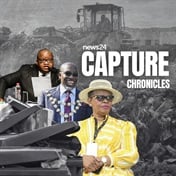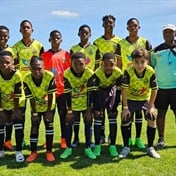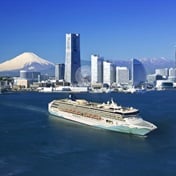
News24 first saw the so-called "Eskom intelligence reports" in October 2022. We never published investigative reports based on it, because the evidence wasn't there, writes Pieter du Toit, assistant editor of investigations.
In January 2021, News24 was given access to a vast trove of documents related to corruption at Eskom.
Alongside our reporting partners, the Global Initiative against Transnational Organised Crime, we set about scoping the cache, trying to figure out what the documents consisted of and, more importantly, what it was telling us.
We published our first story three months after three of our investigative reporters started working on it. The story was based on thousands of internal Eskom memoranda, communications, Excel spreadsheets, contracts and project management documents. It was also based on documents prepared by law firm Bowmans and the Special Investigating Unit (SIU), who had, up until then, been conducting deep forensic probes into extraction networks related to the Kusile Power Station mega project.
Our reporting emanating from that project was augmented by first-hand reporting based on sources we were able to cultivate, visits to locations and sites that cropped up in the documents, and hard yards in independently verifying what the documents were telling us.
The result was a series of investigative news reports - The Eskom Files - which blew the lid off the extent, breadth and depth of corruption in the company.
It laid bare the intricate networks that, over the course of many years, used proximity to company resources and private sector influence to enrich themselves and their cronies. During these extraction operations, the construction and operationalisation of Kusile was set back many years, and the acute problem of load shedding became catastrophic.
ALSO READ | The Eskom Files: The ultimate guide to News24's Eskom coverage
As we have detailed, every South African is now paying the price for Eskom and the government allowing corruption and mismanagement to flourish.
De Ruyter frustrated
Following the publication of these reports – and thanks to the work done by Bowmans and the SIU – many of the ringleaders in these networks are now facing trial, including Abram Masango, who was group executive for the group capital division, which oversaw the massive Kusile and Medupi build programmes. Masango and others, based on the documents contained in The Eskom Files, benefitted enormously from their allegedly corrupt schemes, seeing millions of rands lost.
But they are now being held accountable.
During 2021 and early 2022, we became aware of then Eskom group chief executive André de Ruyter's frustration with the slow pace of the police and Hawks investigations into corruption at Eskom. Power stations were regularly hobbled with what seemed like sabotage and ineptitude, often in equal measure. And De Ruyter's attempts to clean up the utility would only have been able to succeed if there were clear and tangible consequences for both saboteur and miscreant.
ALSO READ | Revealed: Apartheid spook behind De Ruyter's R50m off-the-books Project Ostrich
He was struggling to make progress.
In mid-2022, we were told about an off-the-books, private investigation conducted into corruption at Eskom. This investigation was overseen directly by De Ruyter and financed privately from funds obtained outside of company processes. The reasoning was that corruption at Eskom was so deeply entrenched that internal audit and forensics couldn't be trusted.
The private investigators also had the support of De Ruyter to do what needed to be done. The purpose of the investigations, as we understood it, was to compile evidence to enable law enforcement to move swiftly and surgically.
Enter George Fivaz
We almost immediately tried to get access to the private firm's reports - and, once we learned it was being conducted by George Fivaz Forensic and Risk (GFFR), News24 made contact with Fivaz and his chief investigator, Tony Oosthuizen. Following lengthy negotiations, we first met Oosthuizen and Fivaz on 28 May 2022 to get more information about the investigations and were shown an organogram detailing the supposed existence of the cartels – and the involvement of then deputy president David Mabuza and Minerals and Energy Minister Gwede Mantashe.
But none of this could be published.
We were, however, only given access to two of the "intelligence reports" on 2 October 2022. Later, we were given access to older reports, but never all the reports – and never source documents.
Then, on 14 August 2022, the first news reports started appearing in the Sunday press. It was clearly based on GFFR's "intelligence" work. Two months later, on 8 October 2022, News24 published a story to denote the existence of a private investigation into coal mafias in Mpumalanga – but did not delve into details.
On 22 September 2022, we were shown an updated version of the elaborate and detailed organogram produced by GFFR, setting out the existence of several "crime cartels" operating in Eskom. This organogram looked significant, in our view, because, up until then, the much-vaunted Project Ostrich (as GFFR named the operation) wasn't really producing much.
ALSO READ | 'Mantashe, Mabuza or both poisoned De Ruyter' - inside the Fivaz reports
The organogram set out quite a remarkable criminal network supposedly revolving around Mabuza and Mantashe. Mabuza, denoted as a "territorial ruler", was at the centre of the enterprise consisting of four distinct cartels: the "presidential cartel", "mesh kings", "legendaries" and the "chief" cartel.
Mantashe seemed to be involved in the "presidential cartel", with links to it through his "daughter". It further set out who the "soldiers" were, and which companies linked to the cartel were doing business with Eskom.
One of the biggest scandals ever
It was mind-boggling to us. If it could be proven that a sitting deputy president and a senior Cabinet minister were involved in dirty dealings with organised crime syndicates at Eskom, it would be one of the biggest corruption scandals ever.
On 10 October 2022, after having done preliminary analysis on the first "intelligence reports" and the organogram, we sent a detailed list of questions to Eskom about companies linked to individuals identified by GFFR. These individuals were seemingly linked to Mantashe, the "presidential cartel" and Eskom.
But something always grated about the reports and the organogram. The "intelligence" did not seem to hold up. We spent weeks dissecting the networks identified by GFFR, looking at the background of people named, and the companies identified. We couldn't make the links GFFR was able to.
ALSO READ | Jacques Pauw: Why I cancelled Eskom book after meeting apartheid spy
We repeatedly went back to Oosthuizen – and De Ruyter – and asked for more information. Where does this claim come from? How do you link this company with that individual? What evidence is there to support the link between Mantashe and Mabuza? If there was a meeting at Nkandla between Jacob Zuma and cartel leaders, when did it take place, and who was there?
From our experience with The Eskom Files, we understood that you must undertake proper and comprehensive due diligence before publishing anything. Even if you have reports and documents, you cannot simply repeat what you have been told.
In a world where disinformation is rife, and so-called "intelligence reports" have been used to advance agendas and discredit people and institutions (Browse Mole Report, SARS "rogue unit", Ground Coverage Report, etc), investigative journalists must always triple check everything.
Barrage of news reports
Then, on 23 February 2023, De Ruyter gave his bombshell television interview in which he – much to our surprise – divulged a significant number of details from GFFR's investigations. It was followed, within days, by a sustained barrage of reports in various media about the cartels, the role of "two prominent politicians" and the coal mafia. It dominated the national discourse for days. The "intelligence reports" found fertile terrain at many outlets.
News24 did not publish a single news report based on GFFR's "intelligence reports". We did not do so because we could not independently confirm claims contained in GFFR's reports, especially and particularly related to the claims about Mantashe and Mabuza.
There was nothing remotely compared to the documents we based our The Eskom Files series on. There were no source documents, no bank statements which showed money flows, no forensic investigative reports, no spreadsheets. In short, there really was nothing that would support the publication of a hard-hitting exposé about a criminal network involving politicians and syndicates.
ALSO READ | EDITORIAL: Corruption at Eskom is rife. A dirty dossier won't stop it
The GFFR reports – and the organogram – looked slick, but there was nothing to substantiate it. We probed the reports, and the organogram, and asked questions of Eskom and GFFR. But we were never comfortable in publishing investigative news reports based on GFFR's "intelligence reports" because the evidence wasn't there. We would not have been able to defend it – to our readers or to the courts.
Eskom is a company riven by corruption, broken by mismanagement and political interference. Of that, there is ample and indisputable evidence.
You don't need GFFR to tell you that. But these reports don't cut the mustard.
- Pieter du Toit is assistant editor of investigations




 Publications
Publications
 Partners
Partners

























